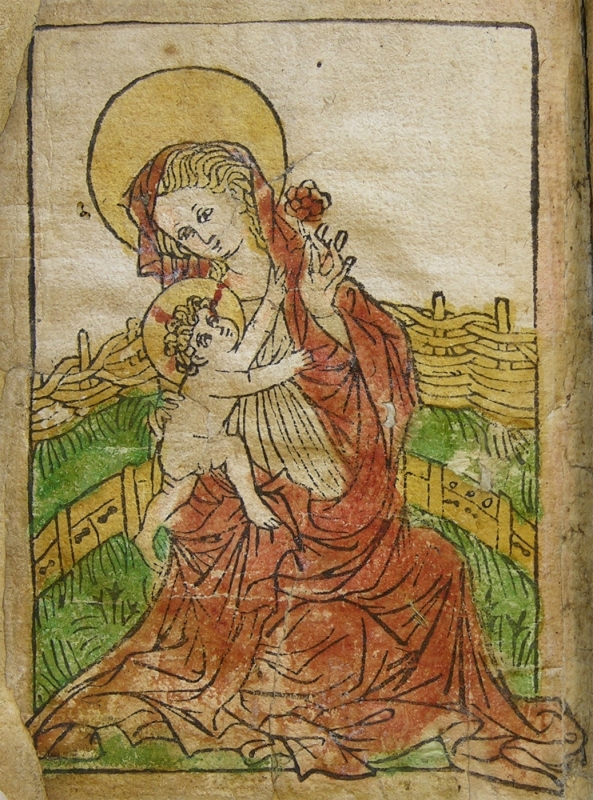Welcome to our May newsletter, dear readers.
We begin our monthly selection with a work by Michaela Eskew on the symbolism and practice of enclosed gardens, drawing from scriptural and liturgical sources, and from a wide range of medieval works of art.
The Garden of Eden set a tone that work was going to be needed to repair what had been broken. In order to mold the chaos back into order, humanity was going to have to labor, toil and work the earth. Humanity would have to act in God’s stead or (as some would believe) work with God to harness the wildness of nature… Through gardening and landscaping humanity could once again return to a moment of time and a parcel of space with the Creator.
Vierge à la rose dans un jardin clos, 15th cent.
• In a chapter from the 18th-century Kitab al-Ibriz, The Book of Pure Gold, by Shaykh Abd al-Aziz al-Dabbagh, we have an insight into “the office of the spiritual master and the sustained will (irada) to be a disciple.”
In the interior of every body there are three hundred and sixty-six veins, each vein bearing its own special attribute with which it was created. The knower of God endowed with deeper vision beholds these veins shining and aflame in their various characteristics… Thus if the knower of God looks at bodies, he sees each body like a lantern with three hundred and sixty-six candles fixed in it.
• Finally, we present an English translation of the most important and famous Christian Orthodox Hymn to the Virgin Mary, the “Akathistos to the Mother of God”. It is not only a treasure of theology and mystical insights, but also a prolonged evocation of the highest joy and of the combative aspect of Mary. Be sure to listen to the related recordings in our Sacred Audio Collection.
Rejoice, initiate of ineffable counsel;
Rejoice, faith of silent beseechers.
Rejoice, introduction to Christ’s miracles;
Rejoice, consummation of his doctrinal articles.
Rejoice, heavenly ladder by which God came down;
Rejoice, bridge leading those from earth to heaven.
Rejoice, marvel greatly renowned among the Angels;
Rejoice, wound bitterly lamented by demons.
Rejoice, for you gave birth to the light ineffably;
Rejoice, for the “how” you taught to no one.
Rejoice, surpassing the knowledge of scholars;
Rejoice, dawn that illumines the minds of believers.
Rejoice, O Bride unwedded!




